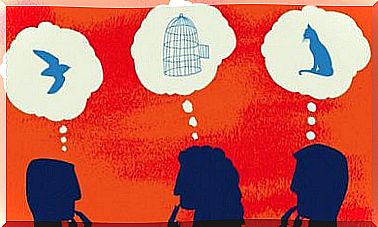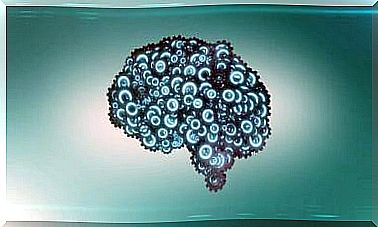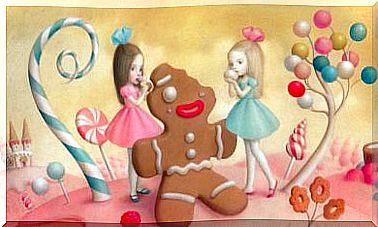Devout Actors: People Who Protect The Values of Society
Devoted actors, also called consecrated or committed actors, are those who will protect morally important values despite involving great sacrifice and extreme actions. They could even kill or die for the defense of these values, particularly if they are related to group identity.
The model of devout actors starts from the integration of two theories: the theory of identity fusion and the theory of sacred values.
The fusion of identity
All people identify with different groups and to different degrees. Some identify with their basketball team or with their country, others identify with their class group or with members of their work. There are also those who identify with a certain political party or with a religion. The fact that we identify with one group does not prevent us from identifying with other groups.
The degree to which we identify as well as being different with each group varies depending on the moment and the circumstances. This identification also differs in that it can be individual or group and both cannot be active to a high degree at the same time.
A new theory, the fusion identity theory, maintains that, when collective identity is fused with the individual concept of oneself, there is an increase in the desire to engage in extreme actions at the moments in which they perceive that the group is threatened. It has also been observed that people, in addition to merging with groups, can also merge with particular causes.
This fusion with the group is not similar to the identification that we can have with a group. The main differences are that:
- Those who are strongly fused with a group believe that what one person can do can have consequences for the whole group.
- Threats to both individual and group identity will have the same consequences, such as a great predisposition to extreme behaviors by the group.
- They recognize and value the differences that may exist between group members and appreciate them both for their uniqueness and for the fact of belonging to a common group, with which the link is twofold.
- The bond of the people merged with their group remains strong and stable over time.
It has been seen that when “fused individuals” perceive that they share attributes and values with some members of the group, they tend to protect these family ties in small groups. As a consequence they have a greater predisposition to fight and die for the large group.
Sacred values
All people have values that they believe in and respect. These values can be given by religion, culture or politics. For example, a highly respected political value is democracy. Values are not always beliefs, they can also be objects and behaviors.
Values are often defended to some degree, but those who defend them above all understand that these values are sacred. The fact that they are sacred has nothing to do with religion, although some religious values can become sacred.
These sacred values are not exchangeable for economic goods, they are priceless, and, to a certain extent, they define “who I am and” who we are, since they are normally related to identification with a group.
Sacred values are processed as norms and are not evaluated in terms of costs and consequences. They are understood as a set of behaviors to be followed and that cannot be broken even if this leads to acting in a way that seems irrational.
Sacred values, although it seems counterintuitive, provide a decisive advantage when they are associated with conflicts between groups. People adhere to them without taking into account social pressure, space-time notions or the benefits of other important values, which would imply alternative courses of action and solutions.
The devoted actors
Sacred values are assumed by social groups. The degree of bonding of the group members causes them to become fused groups that are perceived as an existential threat. In this way, ordinary people, motivated by these sacred values, become committed subjects who will defend and promote these values.
When the achievement of these values is not easy, these groups can create conflicts that become unsolvable. Devout actors don’t give up their sacred values easily. They have been shown to reject financial rewards and ignore social pressure.
The union of these models serves to answer questions such as: why do we fight for lost or immoral causes? What are the jihadists fighting for? What leads them to risk everything they have? Why are they capable of hurting their family?
People fight for their ideals, to pursue a cause in which they deeply believe and that defines their identity, but they also fight for their peers, for brotherhood and unity. Leadership or loyalty to one’s own group are essential when it comes to forming that warrior who can win the battles that were given for lost.









